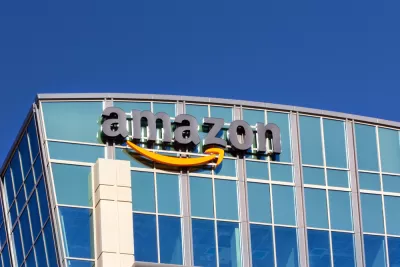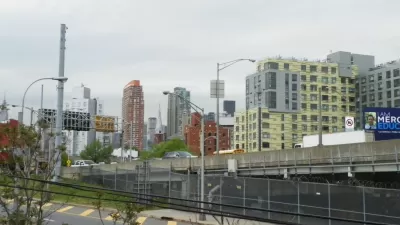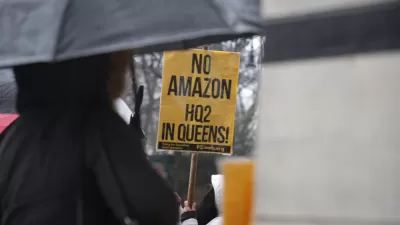With a second headquarters, Amazon is poised to expand its preference for walkable places into a new city. However, maybe the company should take the high road and not beg for subsidies.

Amazon dropped a bombshell earlier last week when it announced that it's going to expand beyond Seattle, building a brand new second headquarters in another city. Based on the qualifications in Amazon's RFP, like on-site access to transit and connectivity options like sidewalks and bike lanes to “foster connectivity between buildings/facilities,” this is another example of how companies are increasingly seeking out vibrant, walkable, connected urban places as they try to attract and retain talent.
Here, Michael Rodriguez, Director of Research at Smart Growth America, discusses why many corporations are moving to vibrant urban locations, and why corporations need those environments to compete. Rodriguez argues that the best model of economic development forgoes tax breaks and subsidies in favor of supportive policy and infrastructure that enables companies to attract talent.
"Instead of subsidies, Amazon should insist on supportive zoning, transit, bicycle and pedestrian infrastructure, in keeping with its reputation as Fortune's 2nd Most Admired Company," Rodriguez writes.
FULL STORY: Amazon's Hunt for a Second HQ is Likely to End in a Vibrant, Urban, Walkable Place

Planetizen Federal Action Tracker
A weekly monitor of how Trump’s orders and actions are impacting planners and planning in America.

Congressman Proposes Bill to Rename DC Metro “Trump Train”
The Make Autorail Great Again Act would withhold federal funding to the system until the Washington Metropolitan Area Transit Authority (WMATA), rebrands as the Washington Metropolitan Authority for Greater Access (WMAGA).

The Simple Legislative Tool Transforming Vacant Downtowns
In California, Michigan and Georgia, an easy win is bringing dollars — and delight — back to city centers.

The States Losing Rural Delivery Rooms at an Alarming Pace
In some states, as few as 9% of rural hospitals still deliver babies. As a result, rising pre-term births, no adequate pre-term care and "harrowing" close calls are a growing reality.

The Small South Asian Republic Going all in on EVs
Thanks to one simple policy change less than five years ago, 65% of new cars in this Himalayan country are now electric.

DC Backpedals on Bike Lane Protection, Swaps Barriers for Paint
Citing aesthetic concerns, the city is removing the concrete barriers and flexposts that once separated Arizona Avenue cyclists from motor vehicles.
Urban Design for Planners 1: Software Tools
This six-course series explores essential urban design concepts using open source software and equips planners with the tools they need to participate fully in the urban design process.
Planning for Universal Design
Learn the tools for implementing Universal Design in planning regulations.
Smith Gee Studio
City of Charlotte
City of Camden Redevelopment Agency
City of Astoria
Transportation Research & Education Center (TREC) at Portland State University
US High Speed Rail Association
City of Camden Redevelopment Agency
Municipality of Princeton (NJ)




























